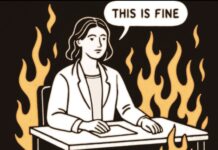An original article (soon to be) published in the International Journal of Mental Health Nursing explores the development, current status, and future trajectory of lived experience work in mental health. Following an overview of the current status of the lived experience movement in the mental health field, the researchers discuss the impact of the trend toward professionalization.
“Debate surrounding professionalization highlights the unique concerns of work that is fundamentally centered on personal experience and relationships trying to find credibility within a system that prioritizes formalized knowledge,” writes the researchers, led by Helena Roennfeldt, a lived experience researcher at RMIT University in Melbourne, Australia.
 The researchers contextualize how lived experience work arose as an alternative and in opposition to perceived failures in the mainstream mental health paradigm against the backdrop of psychiatric consumer/survivor movements. In turn, the mainstream paradigm denied the possibility that lived experience work could provide anything of value to the field. Finally, the researchers explain how this relationship has changed over time, such that the place of lived experience work is now widely accepted in the mainstream.
The researchers contextualize how lived experience work arose as an alternative and in opposition to perceived failures in the mainstream mental health paradigm against the backdrop of psychiatric consumer/survivor movements. In turn, the mainstream paradigm denied the possibility that lived experience work could provide anything of value to the field. Finally, the researchers explain how this relationship has changed over time, such that the place of lived experience work is now widely accepted in the mainstream.
The researchers provide evidence of similar trends in lived experience work internationally, but they primarily examine the situation in Australia. In the US, for instance, lived experience work has not attained the same widespread use and support in mainstream psychiatric services.
Studies on the efficacy of lived experience work indicate one reason that this approach may be gaining traction amongst mental health service providers. The researchers give an overview:
“For consumers, access to lived experience workers has reduced hospital admissions and length of hospital stay; increased empowerment, hope, and independence; and reduced social isolation through strengthening access to social networks and increased consumer satisfaction. Notably, no studies show that lived experience work has an adverse impact on those accessing support.”
While this kind of data may be convincing to research-minded clinicians, the researchers also cite evidence that consumers already prefer when their support comes from workers in lived experience roles over traditional service providers. Many consumers are unsatisfied with their options when seeking mental health treatment; the combination of negative experiences with traditional services and an apparent lack of alternatives pushes some to stop seeking care altogether. The researchers believe lived experience workers can help overcome such barriers to effective care access.
A primary driver of the expanding presence of lived experience workers within mental health care is their move toward professionalization. The researchers evaluate the field’s level of professionalization within a framework that places emerging disciplines on a continuum from “informal collaborations” to “specializations,” with each part of the (non-linear) process corresponding to the achievement of some activity, usually involving formalization and standardization of education or practice.
Overall, the researchers write, “the lived experience workforce has achieved steps towards establishing standardized education and creating a distinct identity and has formidable influence regarding policy and service delivery. However, without a regulatory body or peak agency, the lived experience workforce has not achieved autonomy to make decisions regarding its own workforce.
Subsequently, the lived experience workforce is fighting for external validation and recognition as a profession.” For instance, while the researchers claim the implementation of lived experience workers in mental health has become increasingly common, their roles are typically considered optional additions to traditional care, not as integral or indispensable. Similarly, the lived experience perspective has impacted numerous related mental health fields, but the work is not seen as a distinct discipline.
Lived experience work is beneficial to consumers, and further professionalization bolsters external assessments of its credibility and value. This, in turn, increases the likelihood a given provider will incorporate it into their services. These are the main arguments made by those in favor of the professionalization of lived experience work.
On the other hand, concerns about professionalization are centered around the distinctive values ingrained in lived experience work, which come from its critical positioning against the failures of the hegemonic medical model of mental health. Thus, the incorporation of lived experience work within traditional service might be interpreted as evidence of the success of the sorts of ideologies that created it, as proof that their dialectical opposition finally altered the constitution of the mainstream paradigm as intended. Alternatively, the possibility of lived experience work being subsumed into traditional care could equally be understood as a move by the totalizing mainstream model to absorb any supposed alternatives to their offerings and silence possible voices of critique. The researchers voice similar fears when they write:
“Drawbacks to professionalization are argued to include potential restrictions on political action, with demands for uniformity and registration to a governing body seen as an instrument to moderate the service reform agenda of lived experience work.”
Additionally, moving toward formal and standardized professional education, while always creating barriers to entry to any field, is particularly problematic for lived experience workers, given the very nature of their discipline lies in affirming the existence of certain valuable knowledge solely attainable from lived experience.
The researchers’ reasoning in presenting both positive and negative impacts of professionalization on lived experience work is that they see the continuing trend as essentially inevitable. Thus, they seek to encourage workers to embrace the heightened credibility and valuation of their field that continued professionalization will bring while raising awareness of potential challenges, ideally addressing them preemptively. They write:
“It is critical that the ongoing development of a governing body and autonomy within their own discipline is led by lived experience workers, and proactively supported by leaders and allies within multi-disciplinary teams.”
That lived experience workers should be the ones in leadership roles in their own field may seem obvious. Still, for a fledgling profession whose workers typically provide services under the purveyance of clinical managers, fears of assimilation are genuine. Overall, the researchers seek to encourage both lived experience workers and allies in related disciplines to keep vigilant during the professionalization process and advocate for the new position the work will occupy to maintain the authenticity of its history and unique offerings in mental health service.
****
Roennfeldt, H., & Byrne, L. (2021). Skin in the game: The professionalization of lived experience roles in mental health. International Journal of Mental Health Nursing. Advance online publication. https://doi.org/10.1111/inm.12898 (Link)













“In the US, for instance, lived experience work has not attained the same widespread use and support in mainstream psychiatric services.”
Definitely true. And they’re still teaching the “chemical imbalance” theory to peer trainees in the US, which is when I realized I wanted no part of that BS.
Plus, in the US, many psychologists and psychiatrists are trying to force, and are forcing, people with lived experience to sign conservatorship / guardianship contracts, so they can steal all assets from those with lived experience. Which leaves me asking who would want to work for, or with, such a criminal bunch of ungodly disrespectful, so called “professional” criminals?
“That lived experience workers should be the ones in leadership roles in their own field may seem obvious.” I agree, but actually I think they should be working towards being an alternative to the mainstream DSM medical model people, not working under the “invalid” DSM “bible” believers.
“Still, for a fledgling profession whose workers typically provide services under the purveyance of clinical managers, fears of assimilation are genuine.” And it did appear to me, this is the problem in the mid-west area, in which I currently live. We need alternatives to the DSM “mental health” system instead … and I’m quite certain this is true, worldwide.
But as someone, living in the heartland of America, who knows one does need to stand up against the criminal globalist banksters, who’ve taken control of the large banks of the east and west coasts of America. Not to mention the religious leaders, who’ve “partnered with” the “omnipotent moral busy bodies” of the scientific fraud based, DSM “bible” believing, “mental health” industries.
I know, sometimes, doing such is better done, by not being “assimilated” into their satanic systems. But my experience is likely a partial explanation for why “lived experience work has not attained the same widespread use and support in mainstream psychiatric services” in the US.
Report comment
I agree that we need to get away from the DSM model. The DSM only provides labels which psychiatrists then use to “prove” the patient needs whatever patented, synthetic drug is listed for that illness. The patient is told there is no cure and that he has to be a lifelong “customer” of psychiatric goods and services. It’s such fraud. Conventional psychiatry doesn’t address the physical or energetic causes of the illness and I think most people would agree that if you don’t know what’s causing a problem, you’re never going to fix it. The physical, usually BIOchemical, causes of mental illnesses have been known for about 80 years. And trust me, BIOchemical causes are a world apart from “chemical” causes. –Linda from Youtube at “Linda Van Zandt’s Mental Health Recovery Channel,” and Facebook, “A Dose of Sanity”
Report comment